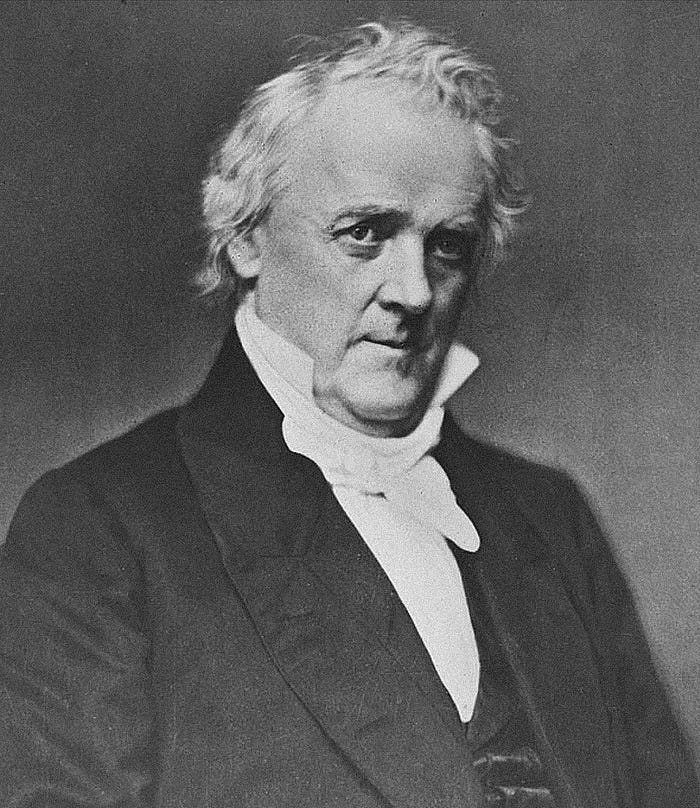Dred Scott: The First Time The Supreme Court Leaked

The country has been roiled by the report that a draft opinion from the Supreme Court overruling Roe v. Wade was leaked. If this is the final opinion, it is a radical and wide ranging opinion that would not only end abortion rights but threaten gay marriage and the right to use contraceptives. Commentators repeatedly claimed that this was an unprecedented leak or that such a leak had never happened in modern times.
What the commentators didn’t mention (or don’t know) is that the first and perhaps most consequential leak in Supreme Court history occurred in the infamous Dred Scott case in 1857. Dred Scott was a Missouri slave who filed suit for his freedom under the theory that his master had taken him into free states and he was no longer a slave under the law.
The Dred Scott case was originally about the status of an individual slave and didn’t involve any larger political issues. However, the five southern justices on the Court wanted to rule that Congress lacked the power to bar slavery in the territories and that the 1820 Missouri Compromise was unconstitutional.
The Missouri Compromise was the product of a long and divisive Congressional debate and the statute barred anybody from taking slaves into the territories and the northwestern part of the U.S. The southern slaveholders had long wanted to expand slavery into the territories and thus opposed that restriction on slavery.
The initial draft Supreme Court opinion was narrowly written to only address Scott’s status. Subsequently, Justice John Catron of Tennessee wrote a letter to President-elect James Buchanan which asked him to lobby his friend Justice Robert Grier of Pennsylvania to join the five southern justices in an opinion that would throw out the Missouri Compromise.
Buchanan shared the southern justices’ belief that the Missouri Compromise was unconstitutional. Buchanan followed up by sending a letter to Grier in an effort to influence the Supreme Court’s decision.
Grier replied to Buchanan’s letter and told him that he would indeed join with the five southern justices in a sweeping opinion aimed at directly addressing the country’s sectional crisis. Subsequently, the Supreme Court ruled by a 7–2 margin to hold that the Congress lacked the power to regulate slavery in the territories and that all people of African descent, free or enslaved, were not United States citizens and therefore had no right to sue in federal court. Chief Justice Roger Taney, in writing the majority opinion, relied upon the theory of so-called “originalism.”
Once the case had been decided behind the scenes, Grier requested that Buchanan not make any mention of the Supreme Court’s decision in his inaugural address on March 4, 1857. The Pennsylvania justice informed the president-elect that the Court would officially release its opinion two days after the inauguration.
Shortly before Buchanan’s swearing in, he was observed having a brief conversation with Taney. Abolitionists later accused Taney of informing Buchanan of the Court’s impending decision. As we now know, Buchanan was fully aware of the decision due to his behind the scenes machinations.
In his inaugural address, Buchanan predicted that the Supreme Court would shortly decide the question of Congress’ authority to regulate slavery in the territories. Buchanan then said: “To their decision, in common with all good citizens, I shall cheerfully submit.”
After the Supreme Court released its decision on March 6, 1857, the southerners exulted since a majority of the Supreme Court had written their chief policy preference into the Constitution. Republicans and abolitionists roundly denounced the decision. The Supreme Court’s ham handed attempt to solve the national crisis only threw gasoline on the flames and further divided an already divided nation.
The American Civil War broke out approximately four years after the Dred Scott decision. The newly ascendant Republicans responded by adding a tenth seat to the U.S. Supreme Court. The 13th and 14th Amendments finally overruled the Supreme Court’s infamous decision in Dred Scott.





